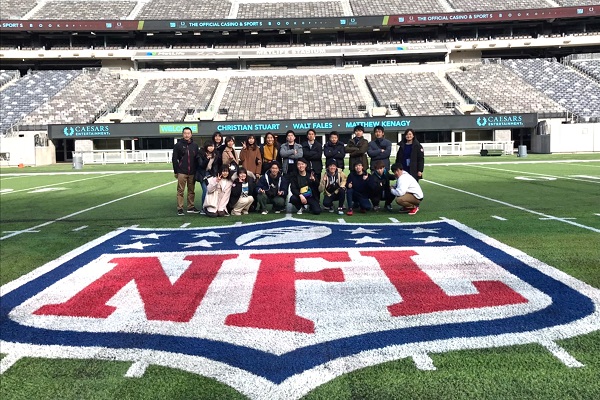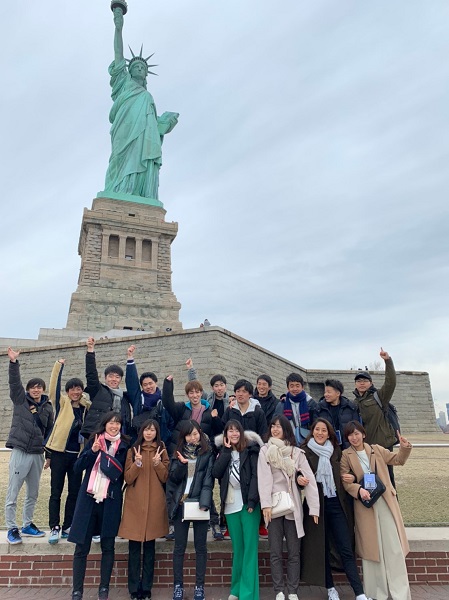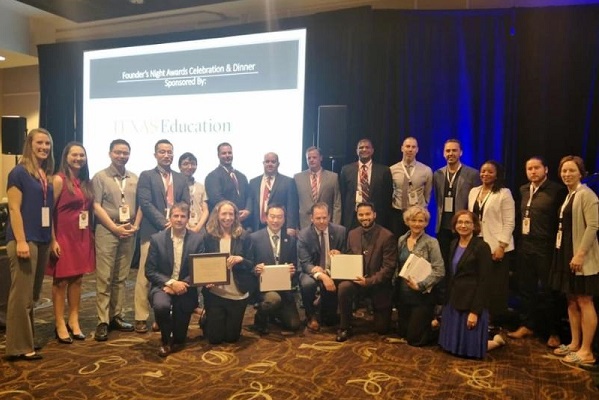reseach
Mastering sport management to contribute to the development of sports
Masayuki Yoshida, Associate Professor
Department of Sports and Health Studies, Faculty of Sports and Health Studies
Posted Aug.11,2021
Faculty Profile
Associate Professor Masayuki Yoshida, who has studied sport management in the United States and enjoyed international acclaim, even being awarded a research fellowship at an American academic society, is broadening his research on the happiness that watching sports brings.
Watching sports at stadiums enhances well-being
I am involved in ongoing research covering sport marketing and sport consumer behavior theory in the field of sport management. My current research explores the connection between sport spectatorship and eudaimonic well-being.
Well-being is a concept that refers to a state of overall contentment with one’s physical, mental, and social health characterized by a proper balance among three elements: good health, contentment and positive interpersonal relations.
Sports have the power to fascinate people because they attract many fans. I am seeking to confirm a causal relationship to determine if watching sports can contribute to well-being.
In conducting surveys and validating data with a particular focus on professional baseball and professional soccer (J. League), both of which are popular in Japan and draw large numbers of spectators, I have learned that it is vital to be “on the ground” to derive well-being from watching sports.
It takes time, effort and energy to go to a baseball field or a stadium to watch a game. Your activity volume increases as you are uplifted by the game’s tangible reality and cheer and clap. Such physical stimulation generates vitality. In addition, your feelings of unity and bonding with the many other fans at the venue improve your social well-being. I believe these synergistic effects enhance your sense of happiness.
The ongoing coronavirus pandemic has closed sporting venues to the public to avoid closed spaces, crowded places and close-contact settings, and a new style of spectating that lets you cheer on your team while watching live-streamed events via networks is garnering attention. However, I feel concerned that this might become common practice. Being able to watch sports wherever you are is convenient but it is not enough to improve your physical well-being. Although you may derive some psychological satisfaction from watching a remote game, you will be deprived of the physical and social satisfaction that comes from watching a match at a stadium. Accordingly, I hope that, at the end of the coronavirus pandemic, people will see a return to the days of going out to venues and watching sports without restrictions.

As part of an overseas practicum in sports business, we visited MetLife Stadium with students to learn about professional sports business in the United States.

During this overseas excursion to study sports business, we considered and exchanged views on the meaning of “practical wisdom for freedom” as we stood in front of the Statue of Liberty.
Striving for a harmonious balance between sports and business
The 1984 Los Angeles Olympic Games are commonly known as the first “commercial Olympics”, marking a major turning point for the sports world. They ushered in an era of running sports as a business as the money-losing Olympics sought to overcome operating crises, and interest became focused on sports management. The urgent need to train specialists and improve the academic system prompted the establishment of the North American Society for Sport Management in 1985. Sport management research subsequently gained momentum, primarily in North America.
If we regard this nascent period as “Sport Management 1.0”, we could now be heading toward a second turning point.
The first turning point, "Sport Management 2.0," came in the 1990s, when sports became more professional and marketing methodologies were introduced into sport management in order to raise working capital. The creation of J. League in Japan in the 1990s brought attention to soccer as a professional sport.
We have now arrived at "Sport Management 3.0", a period of social transformation. The logic of business that seeks profit often contradicts the logic of sports culture that emphasizes the spirit of fair play and the personal growth of athletes. Sports will not develop without a business perspective, but an excessive emphasis on the business aspects will lead to unreasonable changes in rules and operating practices and spark a backlash from people. I believe the challenge we face is determining a proper balance and harmonizing the two.
I want my students to step outside their comfortable environments and achieve personal growth
I was able to win a research fellowship from the North American Society for Sport Management in 2019 because I was motivated as a researcher to bring my research up to international standards. I pledge to do my best as an educator to fully convey the sport knowledge, skills, and abilities I have accumulated to students as “practical wisdom”.
Looking back, I feel that my experience of studying abroad has helped me grow. The world is vast and full of opportunities to encounter diverse values and cultural characteristics. Overcoming inconveniences and difficulties can enhance our potential. I hope that students will step outside their comfortable environments and broaden their horizons once the pandemic subsides and they are free to go abroad again.

At the 2019 research fellowship award ceremony held by the North American Society for Sport Management (I am in the front row, third from the left). Upon receiving the fellowship, I was also elected to the editorial board of NASSM’s journal.
Masayuki Yoshida, Associate Professor
Department of Sports and Health Studies, Faculty of Sports and Health Studies
Born in Niigata Prefecture in 1979, he received his bachelor’s and master’s degrees in Physical Education, Health, and Sport Sciences at the University of Tsukuba. He then went on to earn his PhD in Sport Management from Florida State University in the US. After working as a full-time lecturer and associate professor at Biwako Seikei Sport College, he became an associate professor at Hosei University’s Faculty of Sports and Health Studies in 2017. He is a member of the Journal of Sport Management editorial board, a director at the Japanese Association for Sport Management, and chair of the Mizuno Sports Promotion Foundation's Research Grant and Selection Committee.

